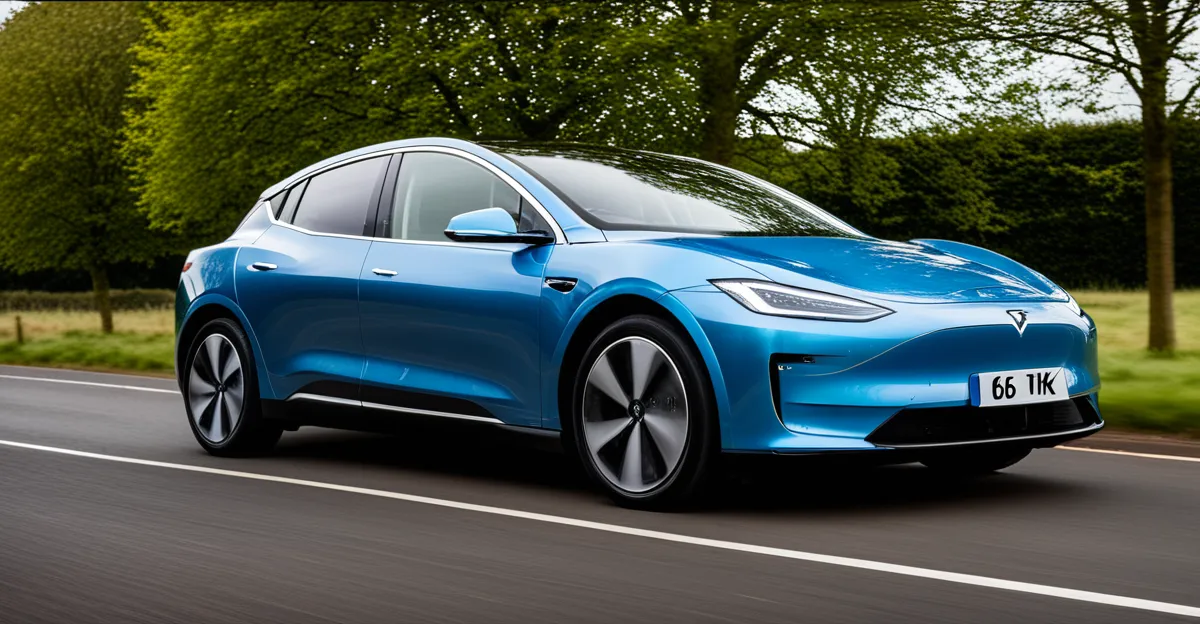Historical Overview of Electric Cars in the UK
Electric vehicles (EV) have a fascinating past, marked by early designs that laid the groundwork for future innovations. The history of electric cars dates back to the 19th century, when inventors began experimenting with electric-powered vehicles. Despite early successes, the adoption of these vehicles was initially hampered by technological limitations and the rise of petrol engines.
Early Designs and Adoption
In the UK, initial electric vehicle development saw inventors trying to solve the challenge of short battery life. During the late 1800s and early 1900s, electric cars were introduced as an alternative to horse-drawn carriages. However, their limited range and speed compared to petrol vehicles restricted widespread adoption.
Topic to read : How Will Autonomous Vehicles Impact the Future of UK Automotive Safety?
Key Milestones in the UK’s EV Journey
The UK has experienced several key milestones that influenced its electric vehicle trajectory. The 1970s oil crisis renewed interest in EVs, challenging the dominance of petrol-powered cars. In recent years, advancement in battery technology and a societal shift towards sustainable practices have fostered increased interest and investment in electric cars.
Government Policies and Impact
Government initiatives have significantly shaped the development of electric cars in the UK. The introduction of tax incentives and subsidies in the 2000s aimed at reducing carbon emissions played a critical role in boosting EV production and adoption. These policies encouraged manufacturers to focus on more sustainable models, directly impacting the electric vehicle development trajectory in the country.
Also read : How Will the UK’s Automotive Industry Adapt to Greener Technology?
The history of electric cars in the UK reveals a continuous evolution marked by early trials, technological breakthroughs, and supportive policies, all of which have contributed to the current landscape of the automotive industry.
Regulations and Incentives Impacting Electric Car Adoption
The evolution of electric vehicles in the UK is significantly influenced by UK regulations and EV incentives. Government regulations addressing emissions have been crucial in reshaping the automotive landscape. Several policies mandate that manufacturers reduce carbon emissions, directly impacting electric vehicle production. Initiatives like the UK’s promise to prohibit the sale of diesel and petrol cars by 2030 have accelerated the shift towards electric vehicles.
Financial incentives also play an essential role in making electric cars more accessible. These include grants that lower purchase prices and tax benefits that reduce ongoing costs for owners. Through such incentives, more consumers are empowered to switch to environmentally friendly options, playing a pivotal role in boosting electric vehicle sales.
Furthermore, urban areas are increasingly implementing low emission zones, which discourage the use of high-emission vehicles in city centers. These zones not only encourage the adoption of electric vehicles but also significantly improve urban air quality. Collectively, these efforts showcase the UK’s commitment to fostering sustainable practices and transforming the automotive industry.
Current Trends in the UK Automotive Sector
The UK automotive industry is experiencing a transformative phase with the current electric vehicle trends driving significant changes. Electric vehicle sales have shown impressive growth, reflecting a shift in consumer preference towards environmentally friendly alternatives. This trend is partly driven by heightened awareness of sustainability and environmental impact, which increasingly influence buying decisions.
Many consumers now prioritise vehicles that contribute to reduced emissions, demonstrating a collective move towards greener choices. In response, major automotive brands are transitioning to electric vehicle offerings, expanding their product lines to accommodate the growing demand for electric cars. This transition is not only a testament to the industry’s adaptability but also highlights the strategic direction manufacturers are taking to remain competitive and environmentally responsible.
Brands such as Jaguar, BMW, and Ford are enhancing their portfolios with electric models, showcasing innovation in design and technology aimed at appealing to modern consumers. As this landscape continues to evolve, the UK automotive sector stands at the forefront of a global shift towards sustainable transportation solutions.
Technological Innovations in Electric Vehicles
The electric vehicle technology landscape has seen remarkable progress, particularly in the realm of battery innovations. Modern electric vehicles now boast significantly improved battery performance, with enhanced energy density and faster charging capabilities. These advancements help to address previous limitations, such as limited range, making electric cars more appealing to consumers.
Charging Infrastructure Development
Ensuring widespread adoption of electric vehicles requires robust charging infrastructure development. The UK is actively expanding its charging network, with both public and private sectors investing in fast-charging stations. This growth in infrastructure not only supports existing EV owners but also boosts consumer confidence, making the transition to electric more feasible for potential buyers.
Innovations in Autonomous Driving and Smart Technology
In the realm of driving aids, innovations in autonomous driving and smart technology features are revolutionising the way consumers interact with their vehicles. EV advancements now include advanced driver-assistance systems (ADAS), offering enhanced safety and improved navigation. These technological strides are pivotal in shaping the future of transportation, positioning electric vehicles as not only eco-friendly but also intelligent mobility solutions.
Market Shifts and Economic Implications
The rapid growth in electric car sales has created notable shifts in the automotive market landscape. As more consumers gravitate towards electric vehicles (EVs), traditional petrol and diesel car sales have seen a decline. This transition represents a significant change, impacting how manufacturers approach new models and investments. The focus is increasingly on electric vehicle development, reflecting broader global trends towards sustainable solutions.
Impact on Traditional Automotive Sales
The rise of EVs directly affects traditional automotive sales. Consumers show increased interest in eco-friendly options, aligning with heightened awareness of environmental issues. As a result, manufacturers are reevaluating their portfolios, with greater emphasis on developing electric cars to capture the evolving market demand. This shift poses challenges but also opens up new avenues for growth in product offerings.
Employment and Industry Dynamics
Job creation within the electric vehicle sector is a noteworthy outcome of these market shifts. As the demand for EVs grows, there is a corresponding increase in job opportunities related to manufacturing, battery development, and charging infrastructure. However, this also results in shifts within the automotive labor market, where traditional roles may decline as the industry moves towards electric and hybrid technologies.
Investment Trends and Economic Impact
Investment trends are reflecting these shifts, with increased allocations towards electric vehicle technology and related infrastructure. Manufacturers are ramping up efforts in research and development to advance EV capabilities, particularly in battery technology and autonomous features. This focus on innovation not only boosts the EV economic impact but also strengthens the UK’s position as a leader in automotive transformation, encouraging economic growth and technological leadership.
Future Predictions for the UK Automotive Industry
The future of electric cars in the UK appears promising, with developments pointing towards substantial market penetration by 2030. Industry experts forecast that electric vehicles (EVs) could constitute up to 50% of new car sales within the next decade. This trend is anticipated to be driven by continued advancements in electric vehicle technology, such as enhanced battery efficiency and autonomous features that offer more convenience to users.
As the automotive industry predictions unfold, potential changes in consumer behavior also emerge. There is a growing expectation that buyer preferences will shift more decisively towards sustainable, eco-friendly transportation options. This shift is expected to be further encouraged by factors such as increased awareness of environmental concerns and favorable government incentives that make electric vehicles more accessible financially.
Looking forward, the UK is poised to enhance its role as a leader in electric vehicle technology and manufacturing. The combination of strong governmental support, a robust charging infrastructure, and a mature automotive ecosystem suggests that the UK could become an innovation hub for electric vehicles globally. This positioning not only enhances the UK’s automotive industry’s competitiveness but also aligns with the broader objective of reducing carbon emissions and fostering a greener future.
Case Studies and Expert Opinions
In the evolving landscape of electric vehicles, case studies and industry insights are crucial for understanding the successful initiatives that drive the market forward. UK-based companies have been at the forefront of pioneering electric vehicle initiatives that not only focus on reducing emissions but also enhancing consumer appeal through technological advancements.
Successful Electric Vehicle Initiatives
Several companies in the UK have implemented innovative strategies to promote electric vehicle adoption. A notable example includes the collaborative efforts of automotive manufacturers who have invested in extensive charging infrastructure, making EVs more practical for everyday use. These initiatives highlight the crucial role of infrastructure in supporting the growing demand for electric cars.
Expert Insights on Future Trends
Industry experts emphasize the shift towards sustainable transportation solutions as a defining factor in the future landscape of electric vehicles. According to recent industry insights, advancements in battery technology continue to reduce production costs and improve vehicle range, making electric vehicles a viable option for a wider audience. Experts predict that these technological improvements will significantly enhance market penetration by 2030.
Consumer Feedback and Ownership Experiences
Analysis of consumer feedback reveals a generally positive response to electric car ownership in the UK. Many owners appreciate the cost savings on fuel and reduced maintenance expenses, which align with the financial incentives provided for electric car purchases. Furthermore, case studies indicate an increasing preference for smart technology features, such as enhanced driver assistance systems, which enhance the overall driving experience and safety.
Through these observations, it becomes evident that the UK’s approach to electric vehicle development is both comprehensive and forward-thinking, setting a precedent for global standards in sustainable automotive strategies.








